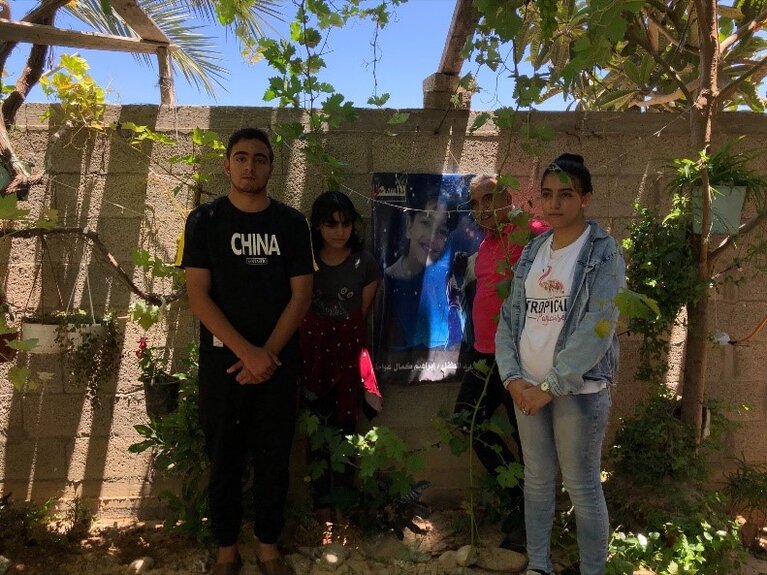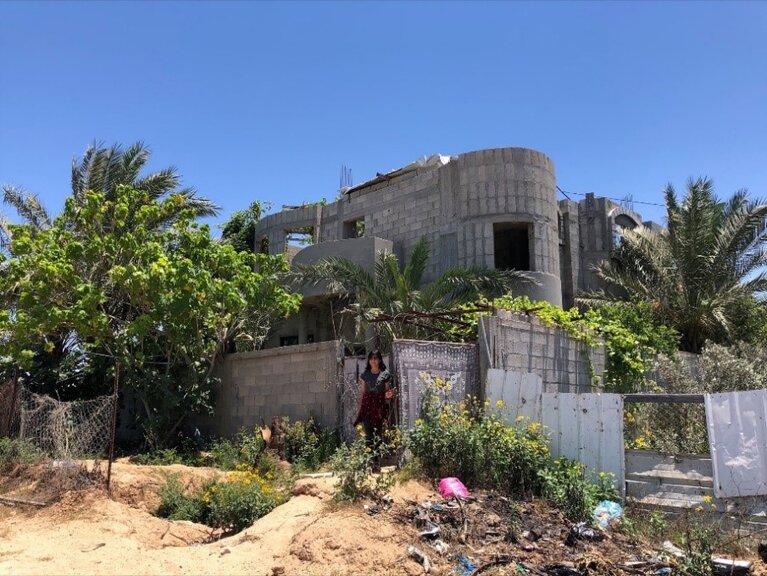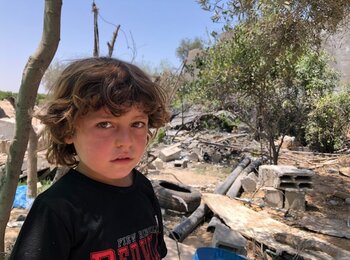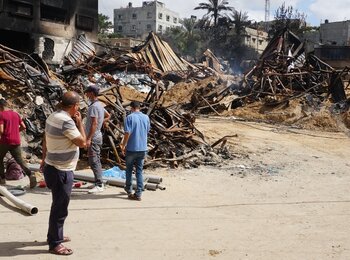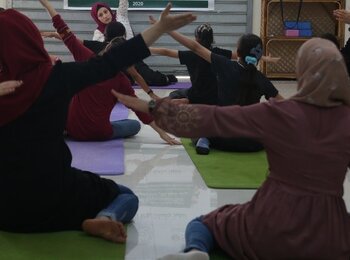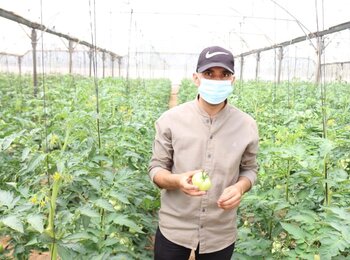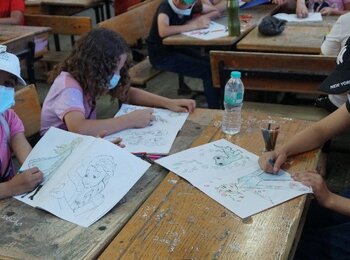Displaced for the third time: The trauma that never abates – Kamal’s story
“I didn’t want to leave Gaza, but now I would go anywhere. When I smile and when I laugh, I feel as if something is wrong. I ask myself why am I laughing? Every day I feel guilty that my children have to live in the same place where their brother was killed.”
Kamal Awaja, 7 July 2021
Kamal and Wafa’a Awaja (aged 60 and 40), and their 14 children, have experienced displacement three times in the last 12 years. The first time the family was displaced was in 2009, during Israel’s air and ground invasion into the Gaza Strip (“Operation Cast Lead”). Their home was destroyed, their 10-year-old son, Ibrahim, was killed in front of their eyes, and they were injured and because of the intensity of the ground operation, they were left with no medical treatment for four days before neighbours managed to get them to hospital.
Following this displacement the Awaja family lived in a caravan until 2012. It was only in 2014 that they were able to re-build their “dream home,” as Kamal calls it. Three months after they moved in, ‘Operation Protective Edge’ started and this home was also destroyed. Kamal recounts, “It was upsetting to have our home destroyed for the second time but at least no one in my family was injured or killed.”
In May 2021, fearful for their lives, and still traumatised by their experience of the 2009 and 2014 escalations, as Israeli airstrikes hit Gaza daily, Kamal and his family had no choice but leave their home for a safer area for the third time.
This time, their current home was not destroyed and none of them was physically injured. “I was happy to return to our house and find it was still standing. To this day, I am still in debt for the furniture we bought for our dream house which was bombed in 2014. I’m still paying 300 shekels (about US$93) monthly,” Kamal explains.
However, the trauma of their son Ibrahim’ s killing and their multiple displacement never abates. “I have neither faith nor belief in International Human Rights Law or the so-called protection of civilians. Israel took that from me, together with my son. My children are traumatised and fearful. I feel helpless,” said Kamal.
